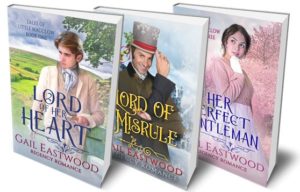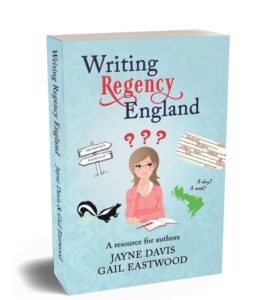Rumor to the contrary, I did not fall down a huge rabbit hole and disappear, although I have been missing from this blog for a couple of months in a row (and that theory is not at all unreasonable)! Has anyone else felt time was racing past at a speed too fast to measure?
Where have I been ? What has been keeping me so occupied? Writing. I wish it was something more exotic, but that’s the truth. I have been working on three projects at once (well, there are also some other projects that aren’t writing ones–aren’t there always?).
Two of the writing projects are related to my Regency series, Tales of Little Macclow.
Book Four (His Lady to Love) is coming along. The heroine is Scottish –what the heck is she doing in Little Macclow, a tiny village in Derbyshire?
And the other related project is a series prequel. It will be free to my email subscribers. If you enjoy my blog posts here, are you on my list? I send chatty newsletters that I consider letters to my friends, but not more often than once a month (sometimes less). If you’d like to join my community, here’s a link to sign up: https://eepurl.com/gbknuH (You can get a free short story.)
Neither of these projects have covers yet, sorry! No pictures. I’m scouting for stock photos of attractive redheads, however, if you happen to have any favorites! And the prequel takes place around 1780, so the images for that one are going to have to be quite different. (Anyone have a guess what it’s about?)
But ah, the third project. That has been sucking up the largest amount of my time, but is almost done!
I should have a release date (or announcement!) very soon! British Regency author Jayne Davis and I teamed up to write this guide to help our fellow authors. There are so many common mistakes an author can make when writing this sub-genre, especially if they’re not British, and since readers of Regency romances skew heavily to the American market, more American authors tend to write the books, too.
As Jayne and I explain in the book’s intro): “One problem all historical fiction authors share is not having lived during the time we are describing. But non-British authors also have the disadvantage of not being steeped in the language, culture and history of the country. And we all have the problem of ‘you don’t know what you don’t know’.”
Writing Regency England aims to help authors to get the language and setting right, and also some of the historical aspects that often trip up authors (laws on marriage and divorce were very different then, for example). It can’t cover everything an author needs to know (that would require an encyclopedic scope), but it casts light on many topics about language, setting, and society where errors are commonly made (including ones we’ve made ourselves) and gives a good starting point for further research.
Do you know anyone who might like to have this book? The holidays are coming –maybe it would make a good gift! I’ll give an update very soon. Meanwhile, I must get back to work!


